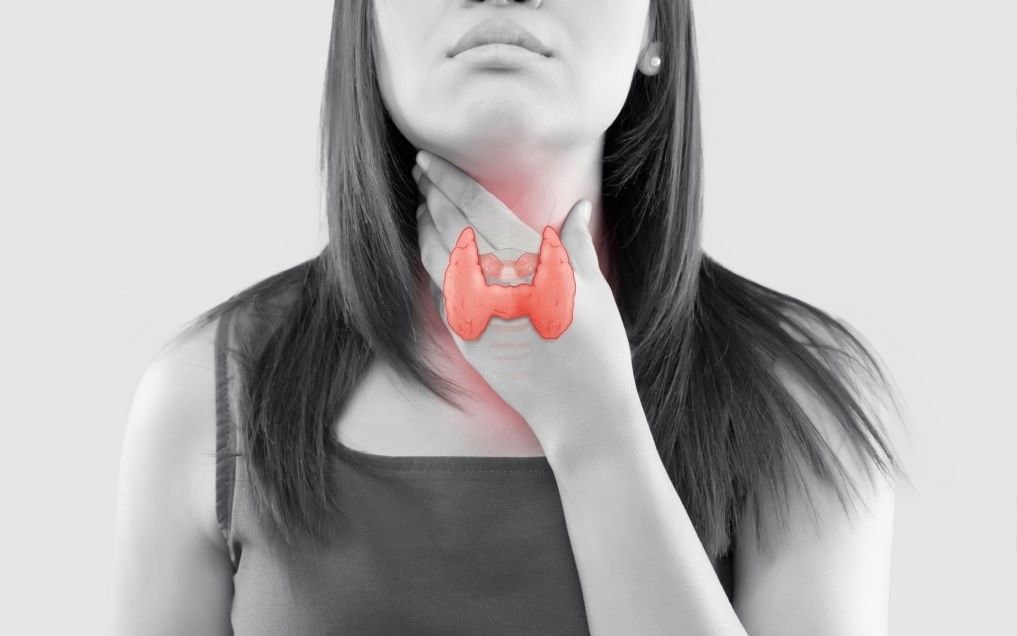Connection Between Thyroid and PCOS
Women with PCOS and thyroid disorders are at higher risk of developing each other due to hormone imbalances and inflammation that affect insulin.

Polycystic Ovary Syndrome (PCOS) and thyroid disorders are two of the most common hormonal disorders that affect women. PCOS is a condition in which the ovaries produce an excess of male hormones, leading to irregular periods, acne, and fertility problems. On the other hand, thyroid disorders occur when the thyroid gland produces either too much or too little thyroid hormone, leading to a range of symptoms, including fatigue, weight gain, and mood changes. While these two conditions are often seen as separate, recent research has highlighted a strong connection between PCOS and thyroid disorders. In this blog, we will explore the link between PCOS and thyroid disorders, including the causes, symptoms, diagnosis, and treatment options.
Causes of PCOS and Thyroid Disorders
The causes of PCOS and thyroid disorders are complex and varied. PCOS is believed to be caused by a combination of genetic and environmental factors, such as insulin resistance, obesity, and inflammation. The excess production of male hormones in PCOS is due to an imbalance of hormones in the body, particularly insulin and luteinizing hormone (LH). Insulin resistance, which is common in women with PCOS, leads to increased insulin levels, which in turn stimulate the ovaries to produce more male hormones. LH, which is produced by the pituitary gland, also stimulates the ovaries to produce male hormones.
Thyroid disorders, on the other hand, are usually caused by problems with the thyroid gland itself. Hypothyroidism, or an underactive thyroid, occurs when the thyroid gland does not produce enough thyroid hormone. This can be due to autoimmune disorders, iodine deficiency, or certain medications. Hyperthyroidism, or an overactive thyroid, occurs when the thyroid gland produces too much thyroid hormone. This can be due to autoimmune disorders, thyroid nodules, or medications.
Symptoms of PCOS and Thyroid Disorders
The symptoms of PCOS and thyroid disorders can be similar and overlap, which can make it difficult to diagnose both conditions. In PCOS, the most common symptoms include irregular periods, acne, weight gain, and fertility problems. Women with PCOS may also experience excessive hair growth on their face and body, as well as thinning hair on their scalp.
In thyroid disorders, the symptoms depend on whether the thyroid gland is producing too much or too little thyroid hormone. In hypothyroidism, the most common symptoms include fatigue, weight gain, dry skin, and hair loss. Women with hypothyroidism may also experience depression, constipation, and cold intolerance. In hyperthyroidism, the most common symptoms include weight loss, nervousness, rapid heartbeat, and sweating. Women with hyperthyroidism may also experience insomnia, diarrhea, and heat intolerance.
Diagnosis of PCOS and Thyroid Disorders
The diagnosis of PCOS and thyroid disorders usually involves a combination of medical history, physical examination, and laboratory tests. For PCOS, the diagnostic criteria include the presence of two out of three of the following: irregular periods, high levels of male hormones (such as testosterone), and cysts on the ovaries. In addition, other conditions, such as thyroid disorders and adrenal disorders, must be ruled out before a diagnosis of PCOS is made.
For thyroid disorders, the diagnosis is usually made through blood tests that measure the levels of thyroid-stimulating hormone (TSH) and thyroid hormones (T3 and T4). If the TSH level is high and the thyroid hormone levels are low, this indicates hypothyroidism. If the TSH level is low and the thyroid hormone levels are high, this indicates hyperthyroidism. In addition, other tests, such as a thyroid ultrasound or a radioactive iodine uptake test, may be used to diagnose thyroid disorders.
Link between Thyroid and PCOS
Recent research has suggested a strong link between PCOS and thyroid disorders. Women with PCOS are at a higher risk of developing thyroid disorders, and vice versa. The exact nature of the link between these two conditions is not fully understood, but it is believed to be related to the hormone imbalances that occur in both conditions. Women with PCOS may have higher levels of insulin and LH, which can affect thyroid function, while women with thyroid disorders may have altered levels of estrogen and progesterone, which can affect ovarian function. Additionally, both conditions are associated with inflammation and oxidative stress, which can further exacerbate the hormonal imbalances. As a result, women with PCOS should be screened for thyroid disorders, and women with thyroid disorders should be aware of the potential link to PCOS.
SUMMARY
There is a strong link between polycystic ovary syndrome (PCOS) and thyroid disorders, with women with PCOS at a higher risk of developing thyroid disorders and vice versa. This is believed to be related to the hormone imbalances that occur in both conditions, including alterations in insulin, LH, estrogen, and progesterone levels. Additionally, both conditions are associated with inflammation and oxidative stress, which can further exacerbate the hormonal imbalances. Therefore, women with PCOS should be screened for thyroid disorders, and women with thyroid disorders should be aware of the potential link to PCOS.
Jayti Shah is a Clinical Nutritionist with a master's degree in Clinical Nutrition and Dietetics. She is a member of the Indian Dietetic Association (IDA). Over the last 9 years, she has helped 400 clients in their clinical and weight loss journeys. She works with SocialBoat as a nutrition consultant.
At SocialBoat, we offer custom diet plans and guided workouts to help you achieve your goals in a 360-degree approach. Our gamified experience ensures that you don’t find workouts boring and we reward you for being consistent with your efforts.

REFERENCES
1.Kowalska, I., Borowiec, A., & Nikołajuk, A. (2018). Polycystic ovary syndrome: etiology, pathogenesis, diagnosis, and treatment. Endokrynologia Polska, 69(3), 268-284.
2. Janssen, O. E., Mehlmauer, N., Hahn, S., Offner, A. H., Gartner, R., & Schramm, J. (2004). High prevalence of autoimmune thyroiditis in patients with polycystic ovary syndrome. European Journal of Endocrinology, 150(3), 363-369.
3. Unuane, D., Velkeniers, B., & Bravenboer, B. (2017). Impact of thyroid autoimmunity in euthyroid women on live birth rate after IUI. Reproductive Biomedicine Online, 35(6), 703-709.
4. Ganie, M. A., Marwaha, R. K., & Aggarwal, R. (2018). Prevalence of thyroid disorders in polycystic ovary syndrome women presenting to a tertiary care center in northern India. Indian Journal of Endocrinology and Metabolism, 22(4), 504-509.
5. Duntas, L. H., & Popovic, V. (2019). Thyroid disease and female reproduction. Journal of Clinical Medicine, 8(5), 736.
